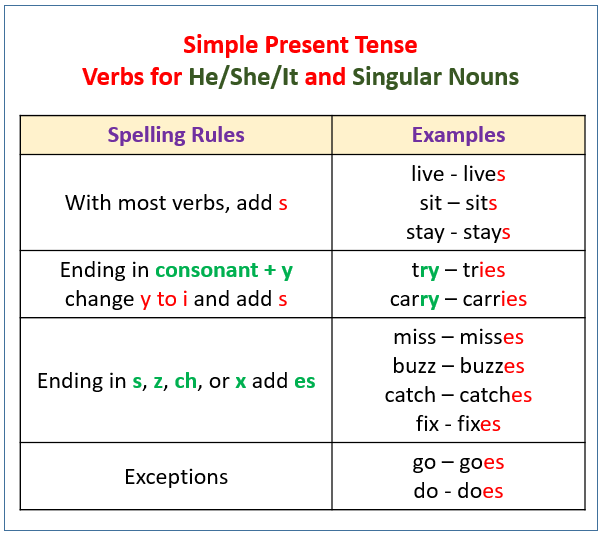Examples Of Verb Forms

 • • • This article describes the uses of various forms in modern standard. This includes: • forms such as go, goes and went • forms such as (to) go, going and gone • Combinations () of such forms with, such as was going and would have gone The uses considered include expression of (time reference),, and, in various configurations.
• • • This article describes the uses of various forms in modern standard. This includes: • forms such as go, goes and went • forms such as (to) go, going and gone • Combinations () of such forms with, such as was going and would have gone The uses considered include expression of (time reference),, and, in various configurations.
Past forms for the modal verbs (modal auxiliaries). These forms use a modal + have + the past participle. Examples: could have gone may have been should have known might have seen would have written must have forgotten. Another use for past participles is as participial adjectives (verb forms used as adjectives). All 12 Verb Tenses in English – Past, Present and Future Verbs. Do you want to improve your English verb tense skills? A good place to start is this list of all 12 verb tenses where we give the verb conjugation for the verb “to travel”. From past, present and future, here are practical examples with different subjects. Example: or change the word's meaning. Example: The base form of a verb is derived from the verb's infinitive: to + verb. Four suffixes consistently added to a.
For details of how inflected forms of verbs are produced in English, see. For the grammatical structure of clauses, including word order, see. For certain other particular topics, see the articles listed in the adjacent box. For non-standard dialect forms and antique forms, see individual dialect articles and the article,. Main article: The or past simple, sometimes also called the, consists of the bare past tense of the verb (ending in -ed for regular verbs, and formed in various ways for ones – see for details). In most questions (and other situations requiring ), when negated, and in certain emphatic statements, a construction consisting of did and the of the main verb is generally used instead – see.
The simple past is used for a single event in the past, for past habitual action, or for a past state: He took the money and ran. I visited them every day for a year.
Sound editor. Sound editor. Sid & aya not a love story lyrics. Assistant director Sound Department. Sound supervisor. Sound editor.
50 Examples Of Verb Forms
I knew how to fight even as a child. However, for action that was ongoing at the time referred to, the is generally used instead. For stative verbs that do or do not use progressive aspect when expressing a temporary state, see. For the use of could see in place of saw etc., see below.

Progressive Forms Of Verbs Examples
The simple past is often close in meaning to the. The simple past is used when the event is conceived as occurring at a particular time in the past, or during a period that ended in the past (i.e. It does not last up until the present time).
This time frame may be explicitly stated, or implicit in the context (for example the past tense is often used when describing a sequence of past events). I was born in 1980. We turned the oven off two minutes ago.
She placed the letter on the table, sighed, and left the house. For further discussion and examples, see below. Various compound constructions exist for denoting past habitual action. The sentence When I was young, I played football every Saturday might alternatively be phrased using (. I used to play.) or using (. I would play.). The past simple is also used without past reference in some instances: in condition clauses and some other dependent clauses referring to hypothetical circumstances (see and below), and after certain.
Examples Of Arabic Verb Forms

For the past subjunctive ( were in place of was), see. For the use of the past tense in indirect speech and similar contexts, see below. Past progressive [ ] The past progressive or past continuous construction combines aspect with tense, and is formed using the past tense of be ( was or were) with the of the main verb. It indicates an action that was ongoing at the past time being considered: At three o'clock yesterday, I was working in the garden. For verbs that do not use the aspect, the is used instead ( At three o'clock yesterday we were in the garden). The past progressive is often used to denote an action that was interrupted by an event, or for two actions taking place in parallel: While I was washing the dishes, I heard a loud noise. While you were washing the dishes, Sue was walking the dog.